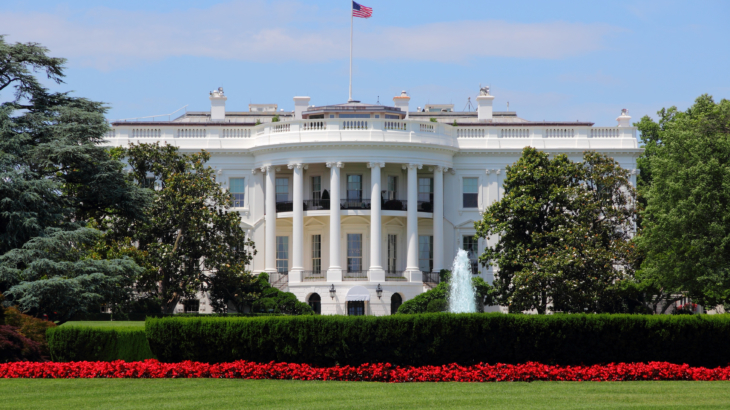Principle of an Executive Branch, Strong but a Role Accountable to the People
 Essay Read by Constituting America Founder, Actress Janine Turner
Essay Read by Constituting America Founder, Actress Janine Turner
The delegates who met in 1787 for the Constitutional Convention faced a difficult task when it came to designing the nation’s executive branch. Americans of the time tended to look upon a strong executive with suspicion. This was a natural response, given the previous experience with the English monarchy. Under the Articles of Confederation, there was no independent executive. This lack of a strong executive turned out to be one of the central defects of the Articles. National authority was often just ignored by the states and disobedience towards democratically-enacted laws culminated in Shays’ Rebellion in Massachusetts. Delegates at the Constitutional Convention were challenged with creating an independent executive who would be powerful enough to enforce the laws effectively yet not so strong that he could overpower the other republican institutions of government. The result of this work was the American presidency.
The text of the United States Constitution recognizes the difficult nature of executing the law. Authority is placed in the president by the vesting clause in Article II, Section 1 which states that “The executive Power shall be vested in a President of the United States of America.” This should be contrasted with the vesting clause in Article I, Section I which grants certain legislative authority to Congress: “All legislative Powers herein granted shall be vested in a Congress of the United States.” Congress only receives the legislative powers specifically granted to it in the Constitution. The executive power granted to the president, however, is not limited to certain powers “herein granted.” Some specific examples of the president’s executive power are given in Section 2. He is the Commander in Chief of the military, can pardon crimes against the U.S., and makes treaties with foreign nations, among other powers. The powers listed in Section 2 are not an exhaustive list but rather specific instances of the way in which executive power can be exercised.
Article II, unlike Article I, does not comprehensively detail the scope of the president’s executive power because it cannot be precisely defined. The president’s function is to execute the laws passed by Congress and to “preserve protect and defend the Constitution” as enumerated in the presidential oath of office. What is necessary to enforce the law and defend the nation depends on the innumerable variety of circumstances that will occur in human life. As human beings cannot predict every emergency that might occur, they cannot list every single circumstance in which the executive can act without restricting the president during an unforeseen crisis. Therefore, the Founders wisely left the executive power broadly defined so that the president can act in whatever situation that might arise.
The broad nature of executive power does not mean that the president’s power is unlimited or arbitrary. For the president to have constitutional power to do something, the act must be executive, meaning that it does not make law but carries out existing laws. The president cannot usurp legislative power from Congress just as Congress cannot interfere with the president’s execution of the laws. Presidents also cannot nullify congressional laws by refusing to execute them. The president’s broad power is constrained by the constitutional system in which it is placed. Senate approval is needed for the ratification of treaties and the confirmation of many presidential appointees. Congress can always restrict the president through the denial of funding or impeachment. The Supreme Court can review the constitutionality of executive actions in legal cases. The people retain the ultimate check of voting the president out of office. The president is neither a dictator nor a pawn of Congress.
The constitutional insight that there must be a powerful and independent president who is defined by the executive functions he must perform was expressed well by Alexander Hamilton in Federalist No. 70. Here he wrote that:
“Energy in the executive is a leading character in the definition of good government. It is essential to the protection of the community against foreign attacks: it is not less essential to the steady administration of the laws; to the protection of property against those irregular and high-handed combinations which sometimes interrupt the ordinary course of justice; to the security of liberty against the enterprises and assaults of ambition, of faction, and of anarchy.”
Government is ineffective unless its laws are obeyed and individuals will not respect the law unless there is a strong enough executive to ensure there is sufficient force behind the laws. A powerful president is of course needed to command the military and defend the nation from invasion. It is equally important to ensure that the government is well-administered and that laws are enforced consistently and effectively.
The genius of the Constitution is that it reconciles the need for a powerful executive with the constraints of republican government. George Washington embodied this idea as the first president. He recommended legislative measures to Congress, vetoed bills on both constitutional and policy grounds, proclaimed American neutrality between France and Britain, and personally led federal troops to suppress the Whiskey Rebellion. These energetic actions were not taken as the personal prerogatives of a king but rather as the exercise of constitutional power granted by the people to a republican servant. Washington understood the president to be the “Chief Magistrate” who must remain aware “of the confidence which has been reposed in me by the People of United America.” The executive’s power must be wielded with the humility and prudence required of a republican governing statesman.
 Benjamin Slomski is Assistant Professor of History and Political Science at Ashland University.
Benjamin Slomski is Assistant Professor of History and Political Science at Ashland University.
Click here for First Principles of the American Founding 90-Day Study Schedule.
Click here to receive our Daily 90-Day Study Essay emailed directly to your inbox.




Join the discussion! Post your comments below.
Your feedback and insights are welcome.Feel free to contribute!